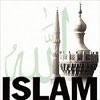
In the town of Belitsa, the local mayor has pioneered a joint celebration of Eid for all religious communities – but some Bulgarians fear that tough new laws against religious extremists are recreating divisions in society.
“We have no problems with our Christians friends. We have never had any problems. We live in togetherness,” Aishe Ismail, who had come with her family from the nearby village of Avramovo, told BIRN.
“Unfortunately, divisions existed in Belitsa – Christians on the one side and the Muslims on the other. I don’t like such things – I like bringing people together,” Radoslav Revanski, the young new mayor of Belitsa, said.
Among all the EU countries, Bulgaria has the largest percentage of Muslim compared to its total population.
Most of these Muslims belong to the country’s largest minority, the ethnic Turks. Sunni followers of the Hanafi tradition, they have a long history of peaceful coexistence with different religious traditions, including Orthodox and Armenian Christians and Jews.
Faced by demands to change their names and forfeit their identity, in the summer of 1989, around 360,000 ethnic Turks chose instead to leave their homes and seek refuge in Turkey.
 The Ismail family celebrating Ramazan Bayram in their home in Avramovo. Photo: Paul Tutsek
The Ismail family celebrating Ramazan Bayram in their home in Avramovo. Photo: Paul Tutsek
The couple insisted that before the assimilation process started, no real divisions existed between the religious communities, but now, over 25 years on, they have not been overcome.
Some fear that Bulgaria’s recent legal measures against religious extremism and terrorism will widen the religious divide in Bulgaria as well as limit the fundamental freedoms of its Muslims.
Veils that fully cover the face are already outlawed in several towns and cities, such as Pazardjik, Stara Zagora and Burgas.
Preachers of radical versions of Islam now face up to three years in prison and fines of up to 5,000 leva [around 2,500 euros], under the proposed changes.
He finds it especially worrying that the proposed legal measures fail to clearly define what “radical Islam” actually is, and says the measures could create a backlash in the Muslim community.
“Those laws are unacceptable, have not been coordinated with the Grand Mufti’s Office and unfortunately will create deep problems for Bulgarian society in future,” he commented.
 Simeon Evstatiev. Photo: Paul Tutsek
Simeon Evstatiev. Photo: Paul Tutsek
“I hope Bulgarian society will be able to find the best modus, based on its experience, balancing between keeping our traditionally good coexistence with necessary measures against some particularly radical versions of Islamism,” he said.
The people of Belitsa and the surrounding villages who had gathered to celebrate Eid together did not seem too worried about the dangers of state repression.













